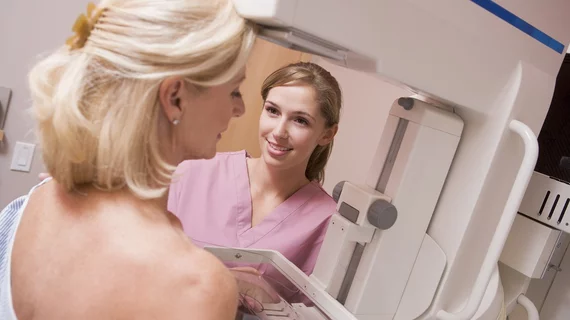52% of women find mammograms uncomfortable, 25% consider them painful
Siemens Healthineers and HealthyWomen, a nonprofit focused on women’s health, have published the results of a new survey focused on patient comfort during mammograms.
The survey included responses from more than 1,000 women 40 years and older who had undergone screening mammograms. Siemens Healthineers commissioned the study, and HealthyWomen conducted it.
Overall, while 61% of women do believe mammograms are necessary, 52% said they find them uncomfortable. In addition, one in four women said mammograms are painful.
“The mammogram experience is often associated with discomfort and pain, which has been a top deterrent for women from obtaining these important screenings,” Pam Cumming, director of women’s health for Siemens Healthineers North America, said in a prepared statement. “This cannot continue, as mammograms play a critical role in early breast cancer detection.”
The survey also found that comfort “is key to encouraging women to continue mammograms as recommended.” While 124 women said they no longer undergo mammograms at regularly scheduled intervals, 32% of those respondents said it was unpleasant experiences that were keeping them away. Also, 12% of women said they had postponed a mammogram in the past due to discomfort—and 3% said they will no longer undergo mammograms for that very reason.
Respondents also indicated that they would go out of their way to find a more comfortable screening experience. Forty-nine percent of women said they would seek out practices offering “more comfortable/tailored mammogram experiences.”
More information on these survey results can be found on the HealthyWomen website.

